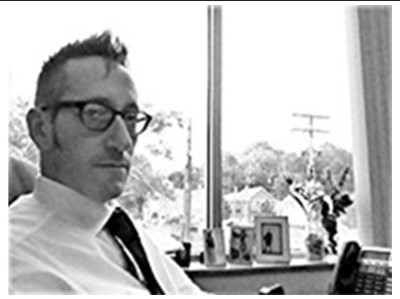By MICHAEL DAVIDOW, Radio Free New Hampshire
Autumn is coming; the nights are turning cool. Autumn is New England’s time of year. Halloween and Thanksgiving have a local feel to them. The greeting card companies concur. Falling leaves of many colors, apples and cider, pilgrims and witches. Then there is that whole business of returning to school, and New England has so many colleges. Again, when you picture a college kid, your mind serves up shetland sweaters and dirty bucks. Autumn brings a sweet mix of melancholy and genuine new beginnings.
There is plenty of pretty music that goes with this weather too. September seems made for Bach’s Goldberg Variations: the simple piano melody becoming more and more complex, chillier and chillier, more and more abstract. But that’s only one way to the heart of this season. Folk songs manage it too. Irish seafaring chants, or hillbilly laments with a guitar for company.
One of my favorite autumn songs was written by Gram Parsons, a native Floridian who spent a semester at Harvard before heading to New York to sing for a living. He eventually ended up in Los Angeles and he eventually joined a rock band called the Byrds. He helped them with an album called Sweetheart of the Rodeo, often credited as pioneering the sound of country-rock.
In 1968, the Byrds were invited to play the Grand Ole Opry in Nashville, where a counter-cultural stir ensued. The local crowd was not too keen on hippies, regardless of how sincerely their guests admired the country music establishment. And Parsons did not endear himself to his audience. He departed from the script and rather than singing a Merle Haggard tune, as expected, he sang a number of his own called Hickory Wind. It’s a lovely song about growing older and missing the landscape of his childhood.
I don’t believe he meant any disrespect by singing that song. The lyrics themselves are proof against that charge. And I’ve always thought that Parsons was brave to stand up there and sing his own words like that. He must have known that it wouldn’t be appreciated. But that’s part of being an artist, I suppose.
I have looked for that performance on the internet and I have come up empty. When it comes to live expressions of pure and public bravery, though, there’s another performance that takes the cake: Nelson Rockefeller’s speech at the 1964 Republican National Convention.
Rocky lost the nomination that year to Barry Goldwater. He was afforded five minutes of time, however, to support certain moderate planks in the party’s platform, and he used his time to excoriate the right-wingers who had taken over his party. The crowd roared its hatred of him. His supporters feared violence. He didn’t care.
“During this past year I have crisscrossed this nation fighting to keep the Republican Party the party of all the people and warning of the extremist threat,” he began. The crowd tried to drown him out. “Some of you don’t like to hear it, ladies and gentlemen, but it’s the truth.” He is grinning as he speaks. Then he lets them have it. He lashes out at the so-called winners to his front, at their strategies, at their ultimate goals. Compare that to the mush-mouthed attitude of every Republican running against Donald Trump, with the sole exception of Chris Christie. Maybe it’s something about New York.
Rockefeller’s version of Republicanism – fiscally conservative, socially progressive; the Republicanism of Abraham Lincoln, Ulysses Grant, Eisenhower, Tom Dewey, and all of New Hampshire for a century– is dead now. We hear it all the time. Except it isn’t dead at all, of course. It has either just left the Republican Party for the label of “independent” or it is hiding in plain sight, in the middle of the Democratic Party (both Clintons would be quite comfortable as Rockefeller Republicans, as would most of their Wall Street supporters). That mindset remains a huge presence in American politics, in other words.
So it’s worth wondering why Rocky himself stayed the course and stayed a Republican even after Goldwater, even after Nixon, up to the edge of the Reagan era, to the end of his life. People often asked him that. And his usual reply was a modest one. Rather than admitting that he basically owned the New York Republican Party, his family having kept it alive for decades in the wilderness, he would instead say that he preferred pushing the Republican elephant forward, over trying to hold the Democratic donkey back.
It’s autumn; it’s time for hard work again. There must be millions of homesick Republicans in this country, longing to reclaim their party from the extremists who have hijacked it.
Davidow writes Radio Free New Hampshire for InDepthNH.org. He is also the author of Gate City, Split Thirty, and The Rocketdyne Commission, three novels about politics and advertising which, taken together, form The Henry Bell Project, The Book of Order, and The Hunter of Talyashevka . They are available on Amazon and Barnes and Noble. Davidow’s Chanukah Land can be found here.






